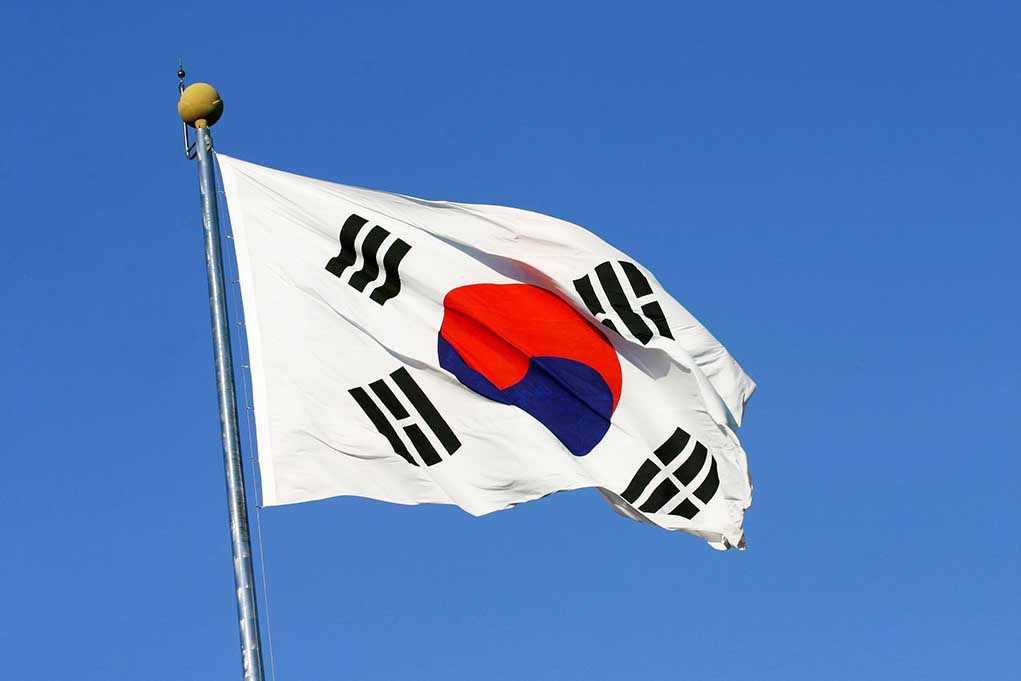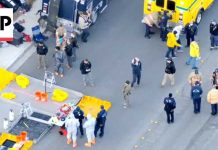
In the largest immigration enforcement action at a U.S. industrial site, President Trump’s crackdown at the Hyundai-LG battery plant sends a stark warning to foreign companies: comply with American law or face serious consequences.
Story Snapshot
- ICE arrested 475 workers, mostly South Korean nationals, at a Georgia Hyundai-LG battery plant for alleged immigration violations.
- President Trump emphasized strict enforcement, yet acknowledged America’s need for foreign technical experts to train U.S. workers.
- The raid disrupted a major foreign-invested project and ignited diplomatic tension with South Korea.
- This action highlights the balance between protecting U.S. jobs and leveraging foreign expertise in critical industries.
Historic Immigration Crackdown at Critical Infrastructure Site
U.S. Immigration and Customs Enforcement (ICE), joined by federal partners, executed a judicial warrant at the Hyundai-LG Energy Solution battery plant under construction in Ellabell, Georgia. The operation resulted in the detention of 475 individuals, most of whom were South Korean nationals allegedly violating immigration laws. This unprecedented raid, the largest single-site action in Homeland Security Investigations (HSI) history, targeted a flagship electric vehicle manufacturing project that represents significant South Korean investment in the U.S. and is intended to fuel the nation’s push for domestic EV production.
This enforcement comes amid ongoing efforts by the U.S. government to localize critical supply chains and address years of worksite compliance gaps, particularly at major foreign-led projects. While ICE raids have historically focused on Latin American labor at food processing and construction sites, this action’s scale and emphasis on skilled foreign nationals mark a significant shift. The timing is notable: with renewed political focus on border security and national sovereignty, federal agencies are sending a strong message to companies operating on U.S. soil.
Trump Administration’s Message: Law First, But Americans Must Be Trained
President Trump, addressing the operation publicly on September 7, reinforced his administration’s commitment to enforcing immigration law and protecting American jobs. He warned foreign companies that compliance is non-negotiable, yet acknowledged a practical reality: America’s advanced manufacturing sector still relies on foreign technical expertise to train the domestic workforce. Trump suggested openness to temporary stays for essential foreign experts, but only within a legal framework that prioritizes the transfer of these skills to American workers. Homeland Security Secretary Kristi Noem underscored that such enforcement actions provide clarity and regulatory certainty for investors, supporting a stable business environment while upholding the rule of law.
Hyundai Motor Company, co-owner of the site, sought to limit reputational fallout by clarifying that the arrested individuals were not direct employees, but rather subcontractor staff. Meanwhile, the South Korean government expressed deep concern for its citizens and the potential impact on bilateral relations, initiating diplomatic talks with U.S. officials. The operation triggered an immediate work stoppage and uncertainty for hundreds of families, as deportation proceedings began for the majority of detainees.
Economic and Political Repercussions for the U.S. and Its Allies
The immediate fallout from the raid has disrupted construction at a facility critical to both local Georgia jobs and the broader U.S. effort to boost domestic EV production. Project delays and labor shortages now threaten to ripple through local suppliers and the surrounding economy. On a broader scale, industry analysts warn that such high-profile enforcement could chill future foreign investment if companies perceive regulatory risks as unpredictable or punitive. At the same time, the incident increases pressure on subcontractors and prime contractors alike to adhere strictly to U.S. labor and immigration requirements.
Diplomatically, the raid has sparked tension with South Korea, a key U.S. ally and investor. South Korean officials are working to secure the release and repatriation of their nationals, while also seeking assurances about fair treatment and future investment conditions. The U.S. administration, for its part, is walking a tightrope—balancing public demands for strong borders and job protection with the practical need for knowledge transfer in high-tech sectors where American expertise still lags.
NEW – Trump warns foreign companies after South Korean workers detainedhttps://t.co/oYN8Kq5fyP
— Insider Paper (@TheInsiderPaper) September 8, 2025
Experts across legal and industrial sectors highlight the raid’s implications for compliance culture at foreign-invested projects. The operation sets a precedent for more aggressive enforcement and signals to global investors that the U.S. expects strict adherence to its laws, especially at sites considered critical infrastructure. At the same time, the administration’s willingness to consider temporary stays for technical trainers reflects the complexity of modern manufacturing and the need to avoid undermining America’s own industrial ambitions. The coming months will likely see policy adjustments and continued debate over how best to align immigration enforcement, workforce development, and national economic interests.
Sources:
Jackson Walker LLP: Insights—Immigration Raid at Hyundai Georgia Plant
ABC7: South Korea will bring home 300 workers detained in massive Hyundai plant raid in Georgia




